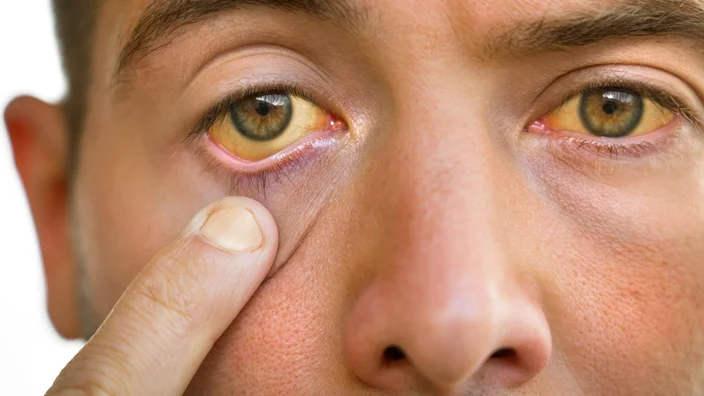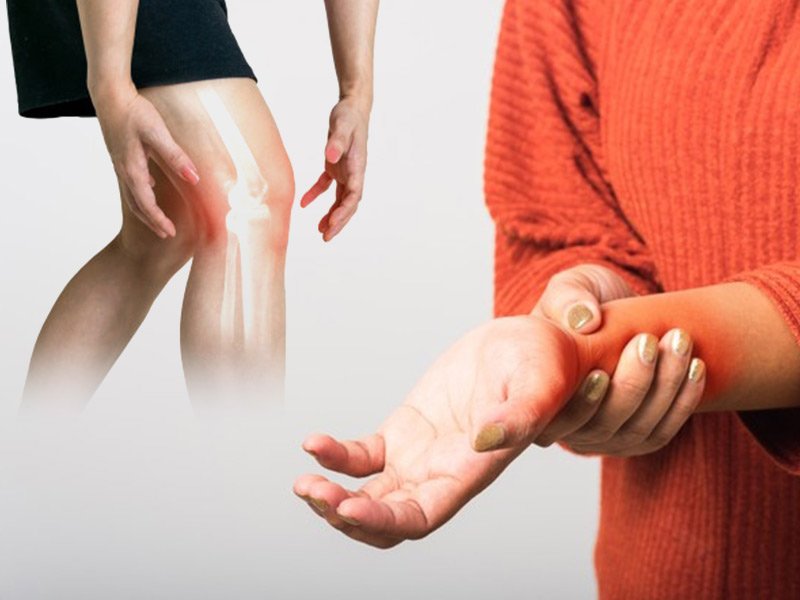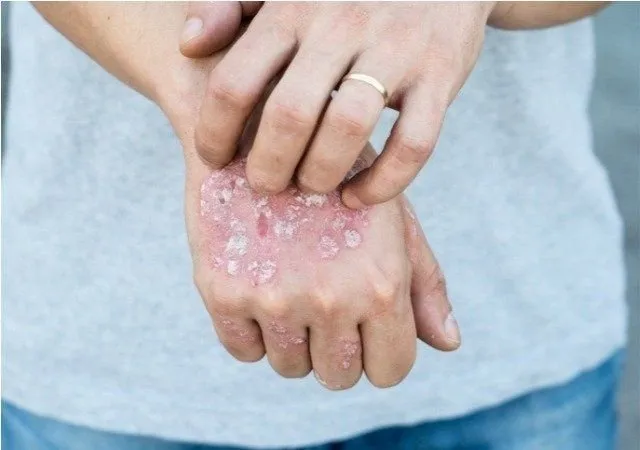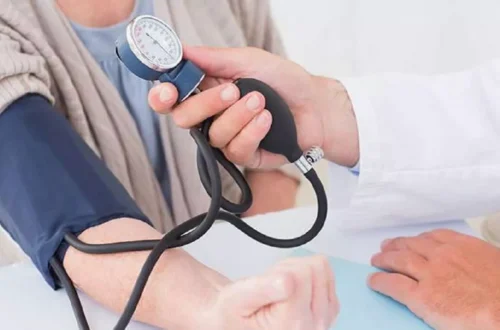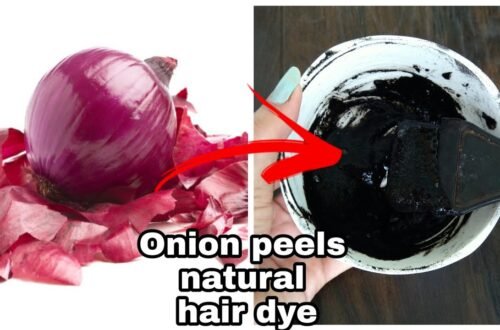Jaundice is a medical condition characterized by the yellowing of the skin, eyes, and mucous membranes. This yellow discoloration occurs due to elevated levels of bilirubin, a yellow pigment produced during the breakdown of red blood cells. Bilirubin is typically processed by the liver and excreted in the bile. However, when there is an issue with the liver’s ability to process bilirubin or an excessive breakdown of red blood cells, bilirubin can accumulate in the bloodstream and lead to jaundice.
The yellow coloration associated with jaundice is most noticeable in the skin and the whites of the eyes. It may also affect other tissues, such as the inside of the mouth. Jaundice itself is not a disease but rather a symptom of an underlying condition affecting the liver, gallbladder, or the production and breakdown of red blood cells.
Starting Symptoms of Jaundice
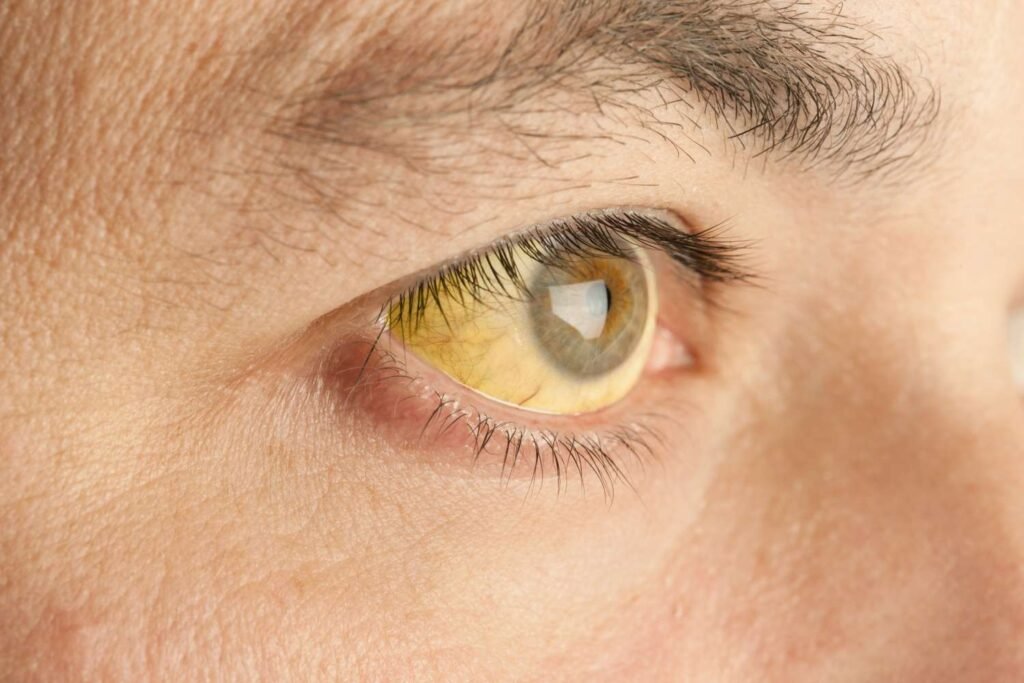
Jaundice, a condition often associated with liver dysfunction, presents itself through a series of distinctive symptoms. Recognizing these early signs is pivotal for timely diagnosis and effective intervention.
Yellowing of the Skin and Eyes
The most recognizable symptom of jaundice is the yellowing of the skin and the whites of the eyes, known as icterus. This phenomenon occurs due to an excess accumulation of bilirubin, a yellow pigment produced during the breakdown of red blood cells. Bilirubin is typically processed by the liver and excreted in the bile. However, when the liver struggles to metabolize bilirubin efficiently, it accumulates in the bloodstream, leading to the characteristic yellow hue.
Understanding the mechanisms behind bilirubin buildup provides insight into the severity of jaundice. Mild cases might result in subtle yellowing, while more advanced conditions can manifest in a deep yellow or orange coloration.
Dark Urine
Changes in urine color often accompany jaundice. As bilirubin is excreted through the urine, its elevated levels can tint the urine dark brown or amber. This alteration in urine color can be alarming for individuals and serves as an additional indicator that the liver may not be processing bilirubin adequately.
Educating individuals on the connection between jaundice and dark urine emphasizes the importance of paying attention to seemingly unrelated bodily changes. It also encourages prompt medical consultation when such changes are observed.
Pale-colored Stools
Jaundice can impact the color of stools, resulting in pale or clay-colored excrement. Normally, bile, which is produced by the liver, gives stools their characteristic brown color. When there’s a disruption in bile flow due to liver dysfunction, stools may lose this coloration.
Understanding the correlation between stool color and liver health aids in recognizing jaundice’s impact on the digestive process. This information empowers individuals to be vigilant about changes in bowel habits and seek medical guidance when necessary.
Causes of Jaundice in Adults
Jaundice in adults is not a condition in itself but rather a symptom of an underlying issue affecting the liver’s ability to process bilirubin. Understanding the diverse range of causes behind adult-onset jaundice is crucial for accurate diagnosis and targeted treatment.
1. Liver Diseases
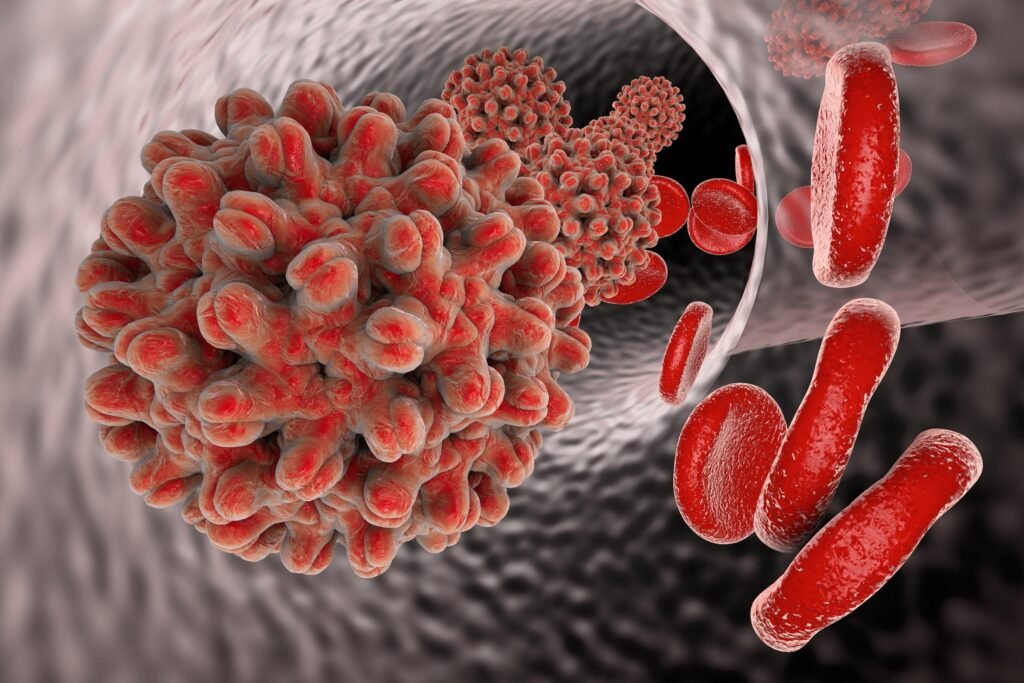
1. Hepatitis: One of the leading causes of jaundice in adults is hepatitis, an inflammation of the liver often triggered by viral infections. Hepatitis A, B, and C are the primary culprits, each affecting the liver differently. Hepatitis disrupts normal liver function, impeding the processing of bilirubin and leading to its accumulation in the bloodstream.
2. Cirrhosis: Chronic liver diseases, such as cirrhosis, can also result in jaundice. Cirrhosis is characterized by the replacement of healthy liver tissue with scar tissue, hindering the organ’s ability to function properly. As the liver deteriorates, bilirubin clearance is compromised, contributing to the development of jaundice.
3. Hemolytic Anemia: Jaundice can occur in adults as a consequence of hemolytic anemia, a condition characterized by the accelerated breakdown of red blood cells. As red blood cells break down, they release bilirubin, overwhelming the liver’s capacity for bilirubin processing. The excess bilirubin then accumulates, leading to the characteristic yellowing associated with jaundice.
2. Bile Duct Obstruction
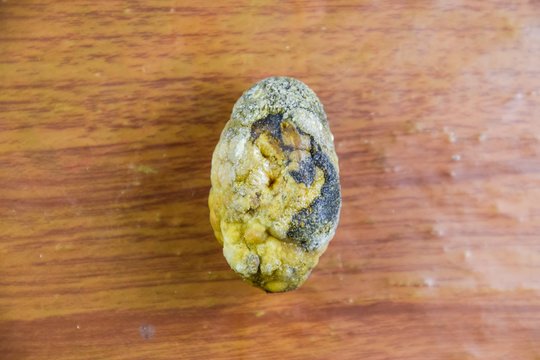
1. Gallstones: Obstruction of the bile ducts, through conditions like gallstones, can impede the flow of bile from the liver to the small intestine. When bile cannot reach the intestines, bilirubin isn’t properly excreted, resulting in jaundice. Gallstones, small crystalline formations in the gallbladder, can block the bile ducts, causing a backup of bile and bilirubin.
2. Bile Duct Inflammation: Inflammation of the bile ducts, known as cholangitis, can also contribute to jaundice. This inflammation obstructs the normal flow of bile, leading to bilirubin retention in the bloodstream.
3. Alcoholic Liver Disease: Excessive alcohol consumption can lead to alcoholic liver disease, another significant cause of jaundice in adults. Chronic alcohol abuse damages liver cells, impairing their ability to process bilirubin efficiently. As a result, bilirubin accumulates, leading to jaundice and indicating a severe impact on liver function.
What is the Fastest Way to Treat Jaundice at Home?
Jaundice, marked by the yellowing of the skin and eyes due to elevated bilirubin levels, often necessitates medical intervention. While home remedies are not a substitute for professional care, they can complement medical treatment and promote overall liver health. Here’s a comprehensive guide on practical ways to address jaundice at home.
1.Dietary Changes for Liver Health

1. Liver-Friendly Foods: Incorporating foods that support liver function is crucial. Include a variety of fruits and vegetables rich in antioxidants, such as berries, citrus fruits, and leafy greens. These foods aid in neutralizing free radicals and reducing oxidative stress on the liver.
2. Hydration: Ample water intake is essential for flushing toxins from the body and supporting overall liver function. Dehydration can exacerbate jaundice symptoms, so ensuring adequate hydration is a simple yet effective step.
2. Herbal Remedies
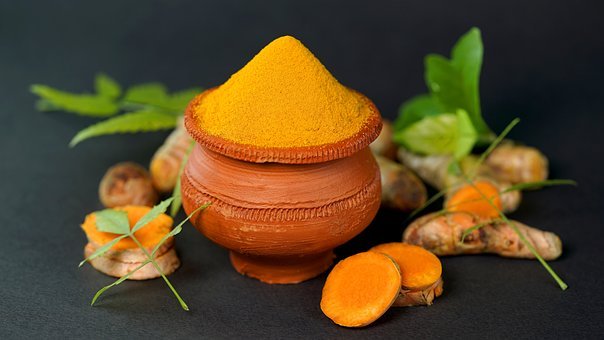
1. Milk Thistle: Milk thistle is a well-known herbal remedy with potential benefits for liver health. It contains a compound called silymarin, which has antioxidant and anti-inflammatory properties. While research is ongoing, some studies suggest that milk thistle may help protect the liver and promote regeneration of liver cells.
2. Turmeric: Curcumin, the active compound in turmeric, has anti-inflammatory and antioxidant properties. It may help reduce inflammation in the liver and support its overall function. Incorporating turmeric into meals or taking turmeric supplements may contribute to liver health.
3. Dandelion Root: Dandelion root has been traditionally used to support liver health. It may help stimulate bile production and promote liver detoxification. Dandelion root tea or supplements can be considered, but individuals should consult with a healthcare professional before adding new supplements to their routine.
3. Lifestyle Changes for Overall Well-Being
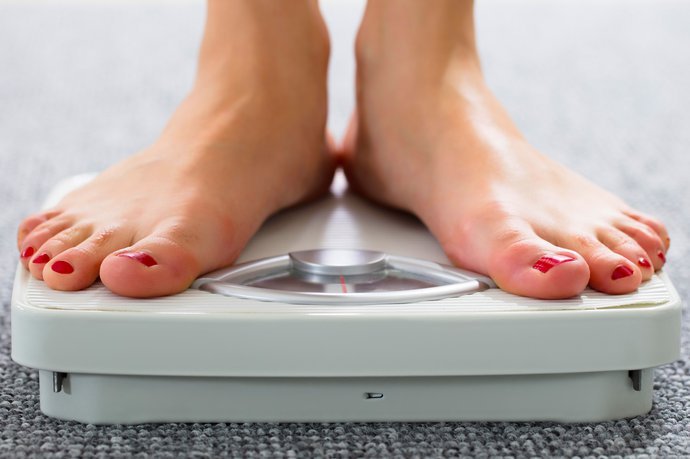
1. Limit Alcohol Consumption: Alcohol can exacerbate liver damage, making it essential to limit or avoid alcohol consumption entirely during jaundice. Abstaining from alcohol gives the liver an opportunity to recover and reduces the risk of further complications.
2. Maintain a Healthy Weight: Obesity can contribute to liver problems, so maintaining a healthy weight through a balanced diet and regular exercise is beneficial. Weight management supports overall liver function and may help alleviate jaundice symptoms.
3. Adequate Rest: Rest is crucial for the body’s healing processes. Getting sufficient sleep and avoiding excessive physical exertion can aid in recovery and support the liver’s regenerative capabilities.
If you have any queries related to medical health, consult Subhash Goyal or his team members on this given no +91 99150 72372, +91 99150 99575, +918283060000।
